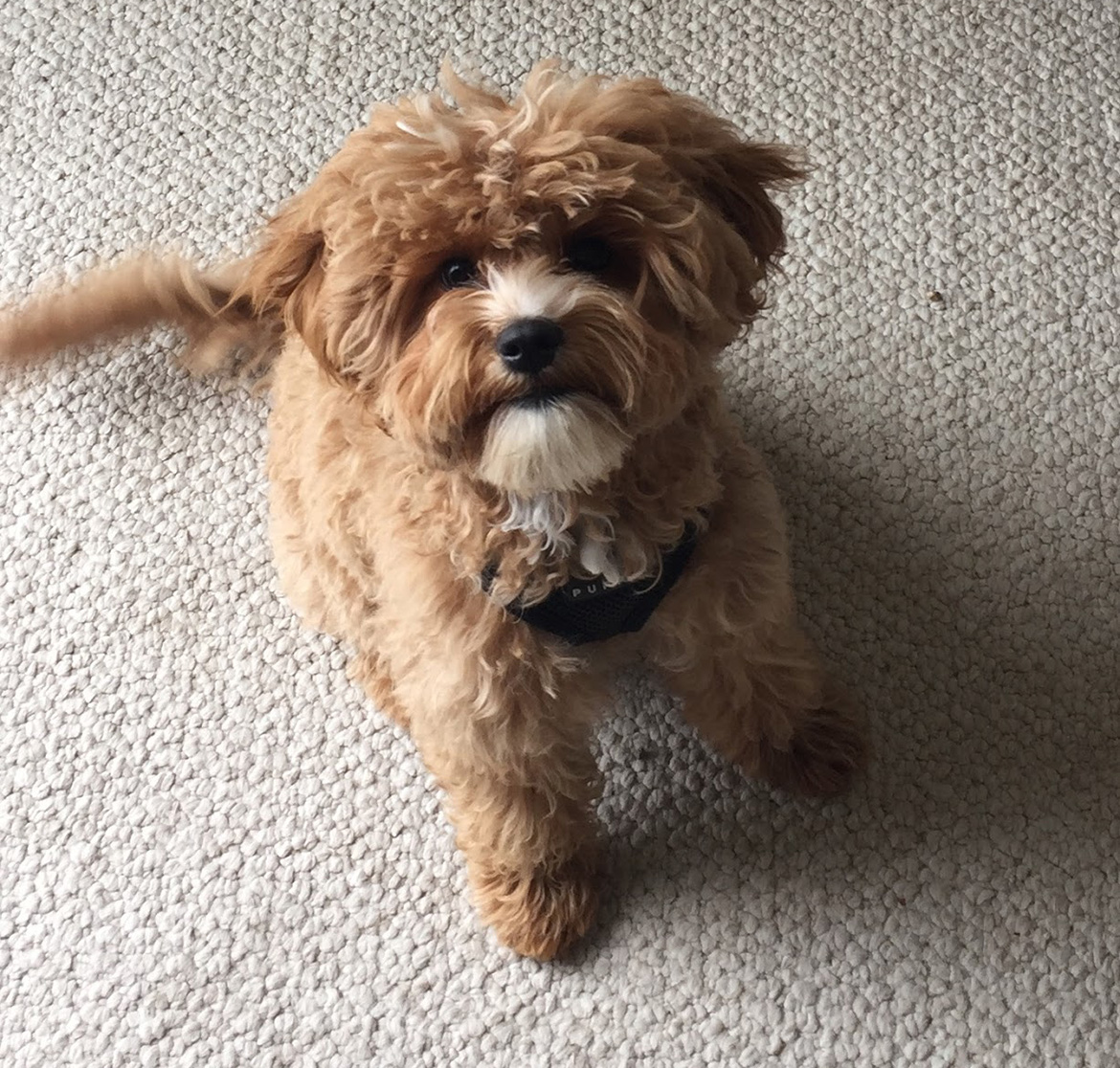
Ouch! Puppies Bite!
They’re so cute at this age, but they can be impossibly bitey! And the nips hurt, and they don’t stop! Puppies can be a bit of an endurance test, and their biting is the worst. But this too shall pass. Their adult teeth arrive at between four and six months, depending on the breed–longest for smaller dogs, usually–and then life will be better.
In the meantime, those puppy needle teeth are teaching Tallulah bite inhibition so she doesn’t bite down when playing as an adult. Your puppy is using you to learn some control while playing so she has a nice soft mouth when she’s older. Ideally, she’d be using another puppy for that–in a great puppy socialization class with off-leash play (http://www.wlaotc.com/obedclass.htm). Other pups have fur to protect from those needles, but they also yelp if another puppy bites.
So you need to be the other puppy! When Tallulah plays too rough and nips, you need to say, “OW!” with a high-pitched yelp sound. She should look startled for a second, so then you ask for “kiss” and give her a great treat if she does. That means you should work on “kiss” when she’s in a calm phase, too, and not playing. Most puppies are lickaholics anyhow: when she licks you–hands or face or anywhere–say the word “kiss” so she learns what the cue means. If you need to practice it more, put a little peanut butter on your hand.
So: “OW!” then “kiss” then treat. Then give her an appropriate chew toy that isn’t your arm. That means having treats at the ready–which is pretty essential for puppy training anyway, having a bag of treats in every room out of puppy reach. She will probably try again because she wants to play. Repeat: “OW!” then “kiss” then treat then trade for a toy. You will want to have lots of toys of different sizes and textures and good chews like Kongs with food inside. Repeat a third time if needed, but if she’s still too annoying, she may need a timeout. She needs to learn that when her behavior is that bitey, the play stops. She goes in her pen or crate or gated kitchen–anywhere away from you. (Just don’t use the ruin the word “come” to bring her to a timeout.) With some puppies you can just walk away and ignore them and they understand the play has stopped–and some will just go for your ankles.
More mental stimulation helps! Obedience cues, puzzle toys, new sights and sounds. More exercise helps! Lots of walks if she’s had her shots and lots of fetch inside if she hasn’t (most pups come with fetch preinstalled but it can be learned if not). Much more contact with other dogs helps! If you want a dog who doesn’t bark at other dogs when older, now is the prime time to get some nice dogs to play with anyhow. Off-leash play in your yard or home with nice dogs you know are vaccinated.
If your pup just can’t seem to stop biting, she may just be bored. Bring out a new toy and move it around and show how fun it is–and she may enjoy it more than flesh. Using “leave it” also helps when she’s after your pant leg or long hair. (Ask me how to teach it if you don’t have that in your toolbox yet.) You can also add some lemon juice to your hands if she’s really bad. Again, treat for the appropriate behavior, which is licking.
If you’re a having a particularly bad time, you can also measure out Tallulah’s meals and feed her by hand. She literally learns not to bite the hand that feeds her. Teaching “touch” so she touches her nose to your flat palm can also serve you–it’s fun for her and teaches better contact especially with small humans.
Tallulah is normal. Very few puppies have actual aggression to worry about, but if your pup seems to respond to human touch by going to bite or actually bites down or even seems to respond to your asking her for behaviors by biting, you will want to have a trainer look at her. But most puppies have this bitey behavior, and I promise it will pass! Hang in there! Good dog parent!